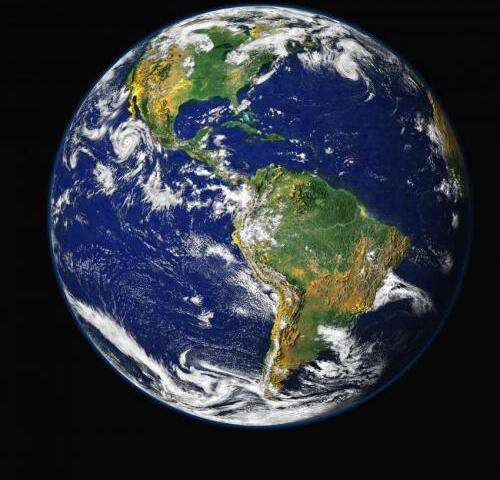Secondhand smoke: Nations producing less greenhouse gas most vulnerable to climate change

A new study by University of Queensland and WCS shows a dramatic global mismatch between nations producing the most greenhouse gases and the ones most vulnerable to the effects of climate change.
The study shows that the highest emitting countries are ironically the least vulnerable to climate change effects such as increased frequency of natural disasters, changing habitats, human health impacts, and industry stress.
Those countries emitting the least amount of greenhouse gases are most vulnerable.
The majority of the most vulnerable countries are African and Small Island States. These countries are exposed to serious environmental change such as oceanic inundation or desertification. They are also generally the least developed nations, having few resources available to cope with these issues.
"There is an enormous global inequality in which those countries most responsible for causing climate change are the least vulnerable to its effects," said lead author Glenn Althor of University of Queensland. "It is time that this persistent and worsening climate inequity is resolved, and for the largest emitting countries to act."
"This is like a non-smoker getting cancer from second-hand smoke, while the heavy smokers continue to puff away. Essentially we are calling for the smokers to pay for the health care of the non-smokers they are directly harming," said co-author James Watson of University of Queensland and WCS.
The study found that 20 of the 36 highest emitting countries - including the U.S. Canada, Australia, China, and much of Western Europe - were least vulnerable. Eleven of the 17 countries with low to moderate emissions were most vulnerable to climate change. Most were found in sub-Saharan Africa and South Asia. The authors say the finding acts as a disincentive for high-emitting "free-rider" countries to mitigate their emissions.
The number of acutely vulnerable countries will worsen by 2030 say the authors as climate change related pressures such as droughts, floods, biodiversity loss and disease mount.
"The recent Paris agreement was a significant step forward in global climate negotiations" said study co-author Richard Fuller. "There now needs to be meaningful mobilization of these policies, to achieve national emissions reductions while helping the most vulnerable countries adapt to climate change".
The study appears today in the journal Scientific Reports.
Journal information: Scientific Reports
Provided by Wildlife Conservation Society




















